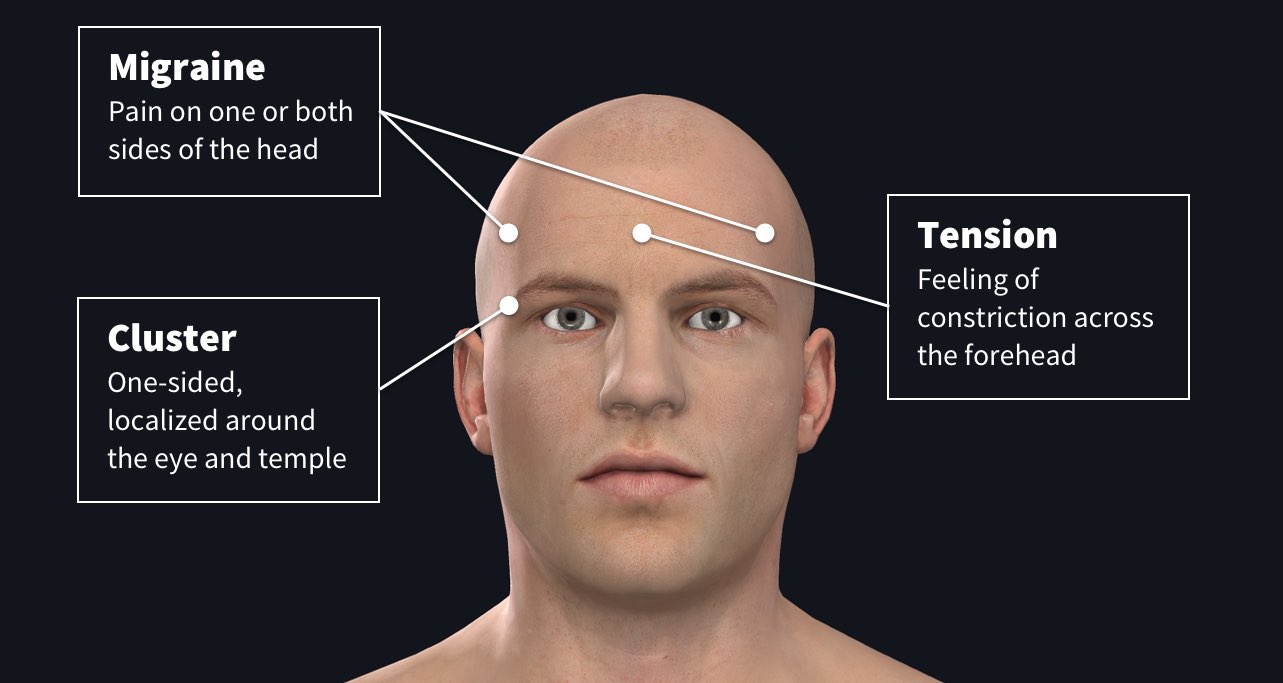
Headaches have been a common complaint for thousands of years. The Egyptians often employed unusual techniques to help relieve pain such as, applying warm goat droppings or fried fish to the area of pain! Thankfully we have made some advancements since then!
Headaches can be classified as primary or secondary. A secondary headache is usually related to an underlying condition. An example is a headache related to a sinus infection. When the headache is the main medical problem it is referred to as a primary headache.
Some primary headaches include;:
Migraines
This is an intense type of headache that can occur on one, or both sides of the head. It is often accompanied by other symptoms such as; nausea, vomiting, photophobia (pain due to light exposure), and/ or mood changes. It is unclear what causes migraines but there are a number of triggers that have been identified including weather changes, certain foods and skipping meals. Migraines can last for 4-72 hours.
Tension headaches
Tension-type headaches (TTHA) are thought to occur as a result of muscle tension or stress. They are the most common type of headache, causing a feeling of constriction across the forehead. They generally result in moderate pain levels but can last for months in some extreme cases.
Cluster headaches
Cluster headaches often occur in groups or clusters, hence the name. During such periods an individual may experience sudden attacks that can last for a few minutes to a couple of hours, multiple times a day. These types of headaches are characterised by severe one sided pain generally localised around the eye or temple. They are often associated with watering red eyes and nasal congestion. Cluster headaches are quite rare, but have been labelled as one of the most painful conditions known to humankind. To this day, the cause of cluster headaches is unknown.
We want to know! What gives you a headache?
